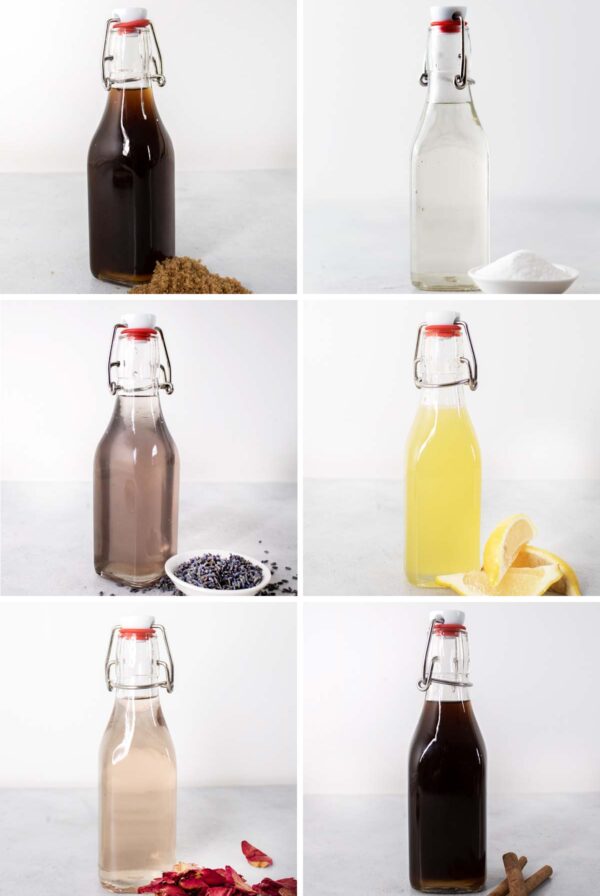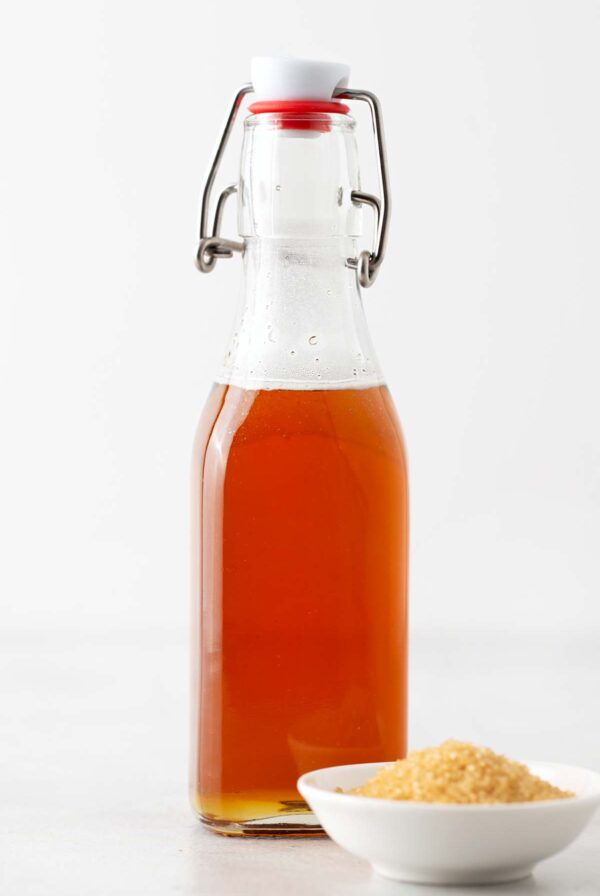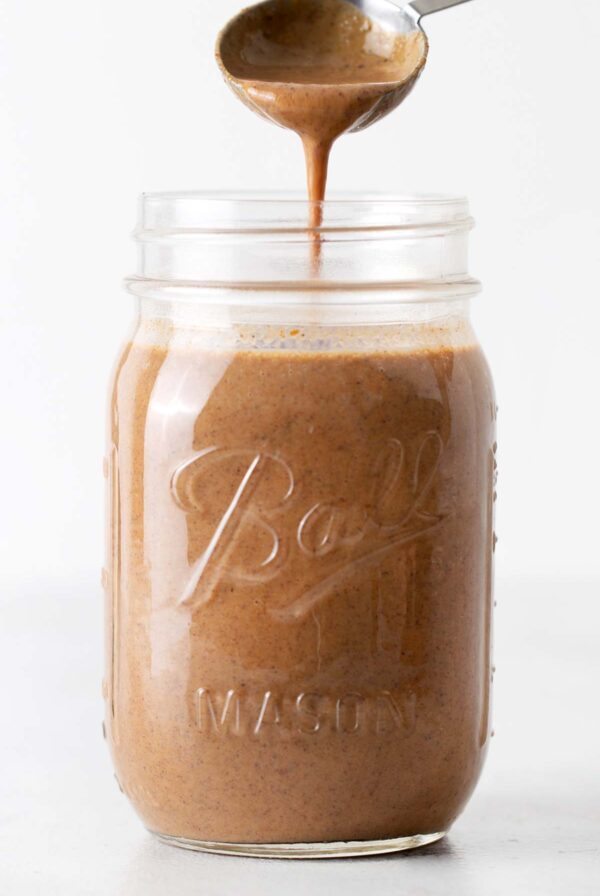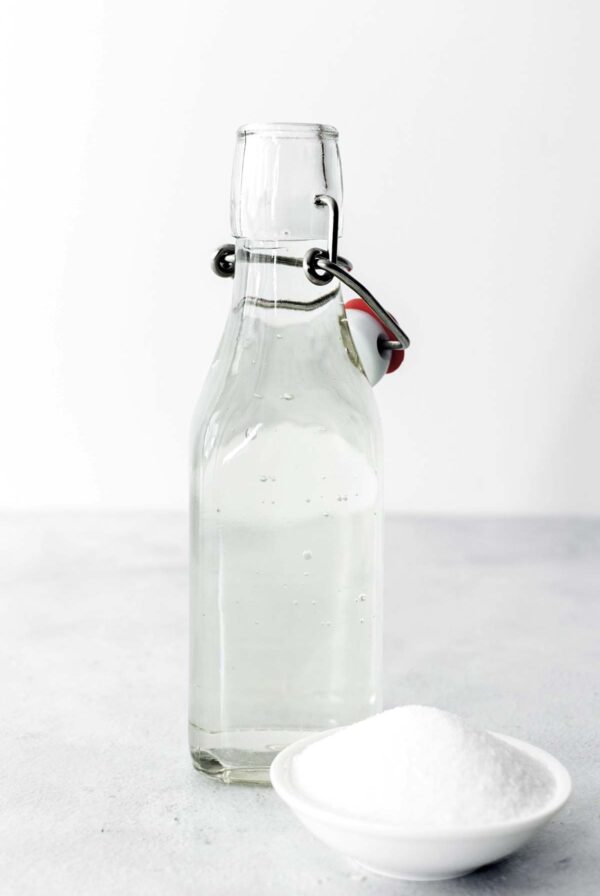7 Benefits of Drinking Roobois Tea
on Mar 20, 2024
This post may contain affiliate links. As an Amazon Associate, I earn from qualifying purchases.
Rooibos tea is a rich source of antioxidants, making it a healthy and nutritious drink. Learn how this delicious caffeine-free tea can benefit your body.

What Is Roobois Tea?
Rooibos tea (pronounced “ROY-BOSS”) is an herbal drink. It’s made from the dried stems and leaves of Aspalathus linearis, a shrub native to the Cederberg mountains of South Africa.
To make rooibos tea, the stems and leaves are steeped in hot water. This creates a naturally caffeine-free drink, as the stems and leaves contain no caffeine.
There are two types of rooibos tea: red and green. The red version is made of fermented stems and leaves. The green version is made of unfermented stems and leaves, and it’s less common than the red.
Also known as African red bush tea, rooibos tea is slightly nutty and sweet. It has mild vanilla and honey undertones.
RELATED: How to Make Rooibos Tea Properly
7 Benefits of Drinking Rooibos Tea
1. Contains No Caffeine
Caffeine is a compound that stimulates the nervous system. It increases alertness and keeps you awake, so it’s common to drink caffeinated beverages in the morning.
However, drinking caffeine too close to bedtime can keep you all night. Consuming too much caffeine can also cause side effects like headaches, rapid heartbeat, stomach issues, and muscle tremors.
Rooibos tea is naturally caffeine-free, so it’s a good option if you want to drink something tasty before bed. Additionally, it’s great if you’re sensitive to caffeine or trying to cut back.
Some medications can negatively interact with caffeine, so drinks like rooibos tea are ideal if you need to limit your caffeine intake.
2. Fights Oxidative Stress
Oxidative stress happens when there’s too many free radicals in the body. These are unstable molecules that damage healthy cells and tissues.
Over time, too much oxidative stress can increase the risk of conditions like heart disease, type 2 diabetes, cancer, and brain disease.
When enjoyed regularly, rooibos tea might help reduce this risk. It’s a rich source of antioxidants, which are compounds that fight free radicals.
Antioxidants work by changing the structure of free radicals. This makes them less harmful and protects the cells in your body. Examples of antioxidants in rooibos tea include polyphenols and flavonoids.
3. Reduces Inflammation
When it comes to preventing disease, it’s also important to target inflammation. Too much inflammation can hurt cells and make you sick, just like oxidative stress.
Plus, inflammation and oxidative stress can make each other worse. So, if one is out of control, it can increase the other.
Since rooibos tea already fights oxidative stress, it’s also beneficial for inflammation. This is due to the antioxidants in the tea.
Another way rooibos tea reduces inflammation is by stopping the processes that make prostaglandin E2, a compound that increases inflammation in the body.
4. Protects the Heart
Oxidative stress and inflammation can lead to heart disease. In both cases, the heart tissue becomes damaged, increasing the risk of issues like heart failure.
Additionally, oxidative stress and inflammation contribute to hypertension, or high blood pressure. Hypertension makes it hard for blood to flow properly, eventually harming the heart.
As rooibos tea fights oxidative stress and inflammation, it can protect the heart. The tea also supports immune function, helping the body fight disease.
Rooibos tea has been shown to improve cholesterol levels too. This is important because high cholesterol can clog blood vessels and reduce blood flow to the heart, causing heart damage.
5. Promotes Bone Health
You might be surprised to learn that rooibos tea is good for the bones. The antioxidant polyphenols in the tea reduce inflammation, which is beneficial for bone health.
They also support different processes needed for healthy bones, like the production of hydroxyapatite. This is a mineral that gives structure to your bones and teeth.
What’s more, rooibos tea supports the activity of osteoblasts, or cells make new bone. Osteoblasts heal bones as well.
At the same time, rooibos tea slows down osteoclasts, which are cells that break down bone. Together, these effects on osteoblasts and osteoclasts may support good bone health.
6. Improves Digestion
The antioxidants in rooibos tea are antispasmodic, meaning they reduce muscle spasms in the body. Examples of these antioxidants include rutin, luteolin, and quercetin.
This is helpful for digestion, because muscle spasms in the gut can lead to diarrhea and loose stools.
Antioxidants in rooibos tea also act as prebiotics in the gut. Prebiotics are compounds that feed gut bacteria, ensuring they stay healthy and balanced.
When the gut bacteria are balanced, digestion is healthier and more normal. It’s good for nutrient absorption as well.
Even the anti-inflammatory effects of rooibos tea help. Inflammation can harm gut bacteria and digestion, but the anti-inflammatory compounds in rooibos can reduce this.
7. Helps Blood Sugar
Drinking rooibos tea can manage high blood sugar, or hyperglycemia. This is beneficial for preventing and managing type 2 diabetes, a condition caused by high blood sugar levels.
Again, it’s all thanks to the antioxidant properties of the tea. Oxidative stress can harm beta-cells in the pancreas, which are responsible for controlling blood sugar.
If these beta-cells don’t work properly, sugar levels in the blood can increase, eventually leading to type 2 diabetes.
Because rooibos tea has antioxidants, it will protect the beta-cells and ensure they’re working. The anti-inflammatory effects of rooibos tea help too.
Side Effects
Rooibos tea is safe for most people. However, there have been reports of people experiencing liver issues after drinking too much.











